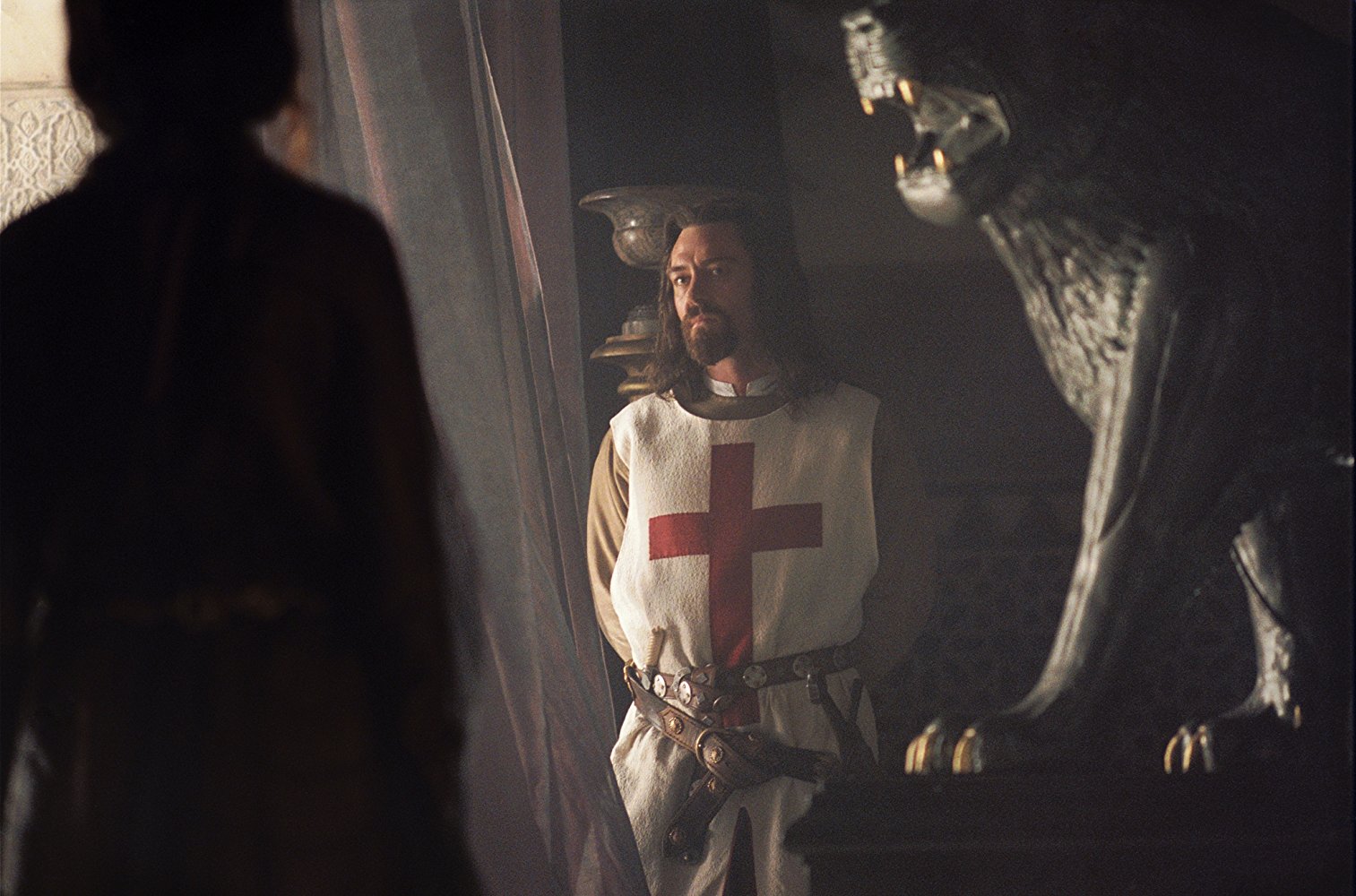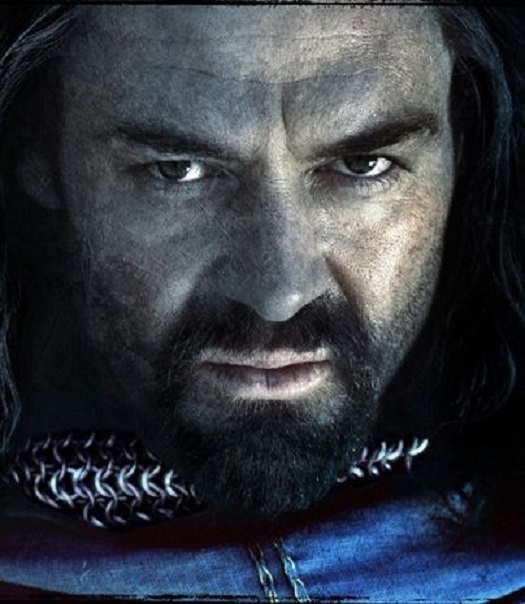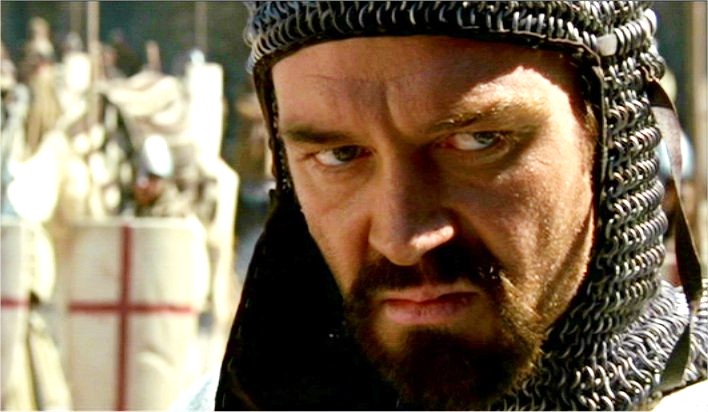Guy de Lusignan (ca. AD 1150 - 1194) was a French knight who became King of Jerusalem in the late 12th century.He was a son of Hugh VIII of Lusignan (in the Aquitaine, which at the time was controlled by King Henry II of England). In 1168, Guy and his brothers ambushed and killed Patrick of Salisbury (uncle and mentor of the young William Marshall) who was returning home from crusade. The Aquitaine was being governed by King Henrys son, the then Prince Richard Lionheart, who subsequently banished Guy and his brothers.Guy and his older brother, Amalric, traveled to Jerusalem at some point in the 1170s. Amalric married the daughter of Baldwin of Ibelin (one of the most important lords in the Kingdom of Jerusalem), thereby entering the two brothers into court circles.In 1180, Raymond III of Tripoli and Bohemond III of Antioch were preparing to invade Jerusalem with the hope of forcing King Baldwin IV to marry his sister Sibylla to Baldwin of Ibelin. In order to avert this, Sibylla hastily married Guy.Due to his incredibly poor health, King Baldwin IV named Guy as his regent in 1182. However, Baldwin soon became disillusioned with Guy, and as early as 1183, began attempting to convince his sister to have the marriage annulled, although he was unsuccessful in this. Baldwin did, however, have new laws of succession written which named Sibyllas son by her first marriage as his heir (the future Baldwin V), and the next succession was to favor his half-sister, Isabella. After this turn of events, Guy kept a low profile until after the deaths of Baldwin IV in 1185, and Baldwin V in 1186.At the funeral of the young Baldwin V in 1186, Guy and Sibylla arrived in Jerusalem with an armed escort, and made a hasty attempt to have Sibylla crowned. The Patriarch Eraclius and many leading nobles consented to this with the precondition that she must first annul her marriage to Guy. Sibylla agreed, as long she should have the freedom to choose her new husband. The terms were accepted and Sibylla was crowned queen of Jerusalem, and to everyones surprise she immediately chose to remarry Guy and made him king. Isabellas claim was thoroughly undermined when her own husband, Humphrey IV of Toron, rather than advancing their claim, swore allegiance to Sibylla, and became one of Guys strongest allies and supporters.Guy attempted to relieve the city of Tiberias which was under siege by Saladin in 1187. However, before he ever arrived, his army was intercepted and utterly decimated by Saladins forces at the Battle of Hattin. Guy himself was taken prisoner, and was one of very few Christian survivors of the battle.Saladin went on to capture Jerusalem itself later that year, but in 1188 released Guy, who went to Tyre (the last strong-hold still in Christian hands) where he was reunited with Sibylla. Tyre was defended by Conrad de Montferrat, who denied refuge to Guy and Sibylla (who camped outside the city).With the knowledge of forthcoming aid in the form of the Third Crusade, Guy and Sibylla went north, and began besieging Acre in 1189. It was in the following year, while still conducting the siege, that Sibylla and their daughters fell ill in an epidemic, and died. This severely undermined Guys claim to the throne, and the Ibelin family (with whom Isabella had grown up) quickly had her divorce Humphrey in favor of Conrad de Montferrat, who also held a minor claim to the royal family of Jerusalem. This did not dissuade Guy from continuing to claim his own legitimacy to the throne.In 1191, Guy went to Cyprus, where he swore allegiance to King Richard (who had been his lord back in France), and aided Richard in his campaign to take the island. In return, Richard supported Guys claim to the throne in Jerusalem. This caused a rift within the new crusader army, as the other primary leader, Philip II of France, supported Conrad de Montferrat (Philips fathers cousin).Guy ultimately lost in the struggle for the crown, and Conrad was crowned in 1192 (although he was assassinated only a few days later). Guy did, however, gain control of Cyprus. When he died in 1194, he left behind no living children, and was succeeded by his brother Amalric de Lusignan. The Lusignans continued to rule Cyprus until 1474.
Show less «








